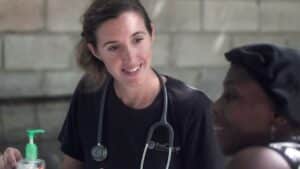Are you or your loved one contemplating enrollment in some form of outpatient substance rehab? You’re not alone. Nationwide, programs in this category represent the number one resource for effective recovery. But what exactly happens in an outpatient treatment program, and how can you prepare yourself? Accurate answers to these questions may help ease any concerns you have about entering rehab. They may also help you get as much out of your time in treatment as possible.
What Is Outpatient Treatment and How Does It Support Recovery?
Before we tackle the question of what to expect during outpatient treatment, we need to define what we’re talking about. With this in mind, what is outpatient treatment, and how does it help you recover from substance problems?
Programs that provide outpatient rehab require you to attend weekly treatment sessions at their facility. When you’re not participating in these sessions, your time is your own. This means that you can live at home and maintain at least part of your normal daily routine.
How long do you spend in weekly sessions in an outpatient program? The answer to this question varies. Why? As it turns out, outpatient care is a category, not a single type of program. This category includes the following options:
- Routine or standard programs
- Intensive programs (known as IOPs)
- Partial hospitalization programs (known as PHPs)
Each of these programs has its own expectations for the time required for weekly treatment. In standard programs, the maximum expectation is eight total hours per week. In IOPs, the time commitment rises to anywhere between nine and 19 hours. In PHPs, it rises even higher to 20-plus hours of total weekly treatment.
Where do these time commitments come from? In standard programs, they reflect the resources needed to support recovery from mild substance problems. In IOPs, they reflect the resources required for the treatment of moderate or moderate-to-severe issues in people in stable conditions. In PHPs, they reflect the resources needed to help people in unstable health with moderate or moderate-to-severe problems.
Going Through Detox in an Outpatient Program
Many people in recovery start their outpatient plan by going through drug or alcohol detox. If this is true for you, while in detox, you can expect to receive:
- Help for your substance withdrawal symptoms
- Regular checks of your vital signs
- Any required support for your general health
You can also expect to receive help preparing for the active recovery phase of your outpatient program.
What to Expect During Outpatient Treatment – Active Steps for Your Recovery
What are the common outpatient treatment program expectations for the active or post-detox phase of your recovery? The answer to this question partly depends on the nature of your substance problems.
In almost all circumstances, you’ll spend much of your time in psychotherapy. If you’re affected by alcohol or opioid addiction, you may also receive help using any prescribed medications. In addition, you may need to undergo urine testing or other checks on your current state of substance abstinence. In a PHP, you should expect to receive additional support to stabilize your physical or mental health.
Get Started in Outpatient Treatment Today with Help from Northpoint Colorado
Have more questions about what to expect during outpatient treatment? Seek comprehensive answers today at Northpoint Colorado. With our help, you can set realistic outpatient treatment program expectations. You can also enter a program that meets your specific recovery needs.
We feature all three options for outpatient recovery. In addition, we’re your source for residential inpatient recovery. Call us today at 888.231.1281 to get started in the program that best fits your requirements. You can also begin the process by completing our online form.




